#the hermetic dream
Explore tagged Tumblr posts
Text

Robert Thibodeau - The Hermetic Dream (An Astrological Tool) - Hermes Press - 1978 (cover artwork 'The Awakening' by Howard Weingarden)
#witches#hermetics#occult#vintage#the hermetic dream#hermetic#dream#hermes press#hermes trismegistus#robert thibodeau#the awakening#howard weingarden#astrology
39 notes
·
View notes
Text

cemetery beauty
#bats#whimsigoth#moodyvibes#goth#gothic#witchy#whimsicore#esoteric#liminal#dark witch#grunge#punk#90s#the craft#whimiscal#dream aesthetic#dark nature#carving#dreamcore#dark fantasy#magick#hermetic#gothic vibes#b&w#monotone#vampire#dark fairy#magical#art#goth photography
3K notes
·
View notes
Text
Vintage Occult Books at KnoxvilleRose on Etsy
Available Now! Vintagebooks on the Occult, Magick & Witchcraft
KnoxvilleRose on Etsy! Check it out!











#vintagebooks#witchcraft#dreams#numerology#scottcunningham#tedandrews#qabalah#treeoflife#hermetics#wicca#paganism#smallbusiness#independentbookseller
3 notes
·
View notes
Text
Lucid Dreaming: A Key to Mastering the Physical Realm? From a 12Her's Perspective 🤔💭

The 12th house is commonly known as the house of the undoing, subconscious, bed pleasures, nighttime routines, dreams/nightmares, spirituality, the deceased/spirit realm, isolation, hospitals, things done in the dark or behind the scenes, nocturnal animals. In my experience, the 12th house is also disorienting and creates realistic illusions. Illusions based on your fears, your greatest desires, things that we suppress and allow to ferment in the flourishing abyss of our subconscious mind.
I believe that we can manifest the things we want by dreaming of them first. The very concept of the 6th/12th house axis is that of your day and night routines; the 6th house, in this context, representing the physical nature of things and the 12th house representing the spiritual nature and things that go looked over, unseen or misunderstood. Afterall, what is more confusing than the nature of our jealousies and carnal desires? The 12th house IS triggering as it forces us to shine a bright light on our shadows not to remove them but to embrace them and use them to our advantage.

HOUSE CONNECTIONS TO DEATH/REBIRTH AND UNDOING 💀☯
From a derivative perspective, the 12H is 5th from the 8H of taboos and the 8H is 9th from the 12H. The 5th house represents things that bring us joy, make us passionate and things that make us feel good. The 8th house represents taboo topics, occult activities like tarot/divination, death, bdsm. The 9th house represents travel, learning, inner discovery, the freedom to expand, our morals and beliefs. If "it's not what you did, it's the principle" was a house it would be the 9th house and the principle in question would be the sign/planets aspecting that house.
**I'm still learning derivative astrology so bare with me**
The 12H being the derivative 5th house of the 8H could mean that in transforming and alchemizing our lives we find joy and give a voice to the ignored parts of ourselves. Or rather that our deepest wounds often lie in our subconscious mind waiting to be expressed in one way or another. Some express that via drug abuse, hypersexuality, alcoholism, egocentric spiritual practices, all of which are topics that fall under the 12H. To die and be reborn again (8H), one must dive deeper into the self and commit to undoing(12H).
Similarly the 8H being the derivative 9th house of the 12H could mean that the things we bury, the things we do not understand in others is what often we don't understand in ourselves. The hermetic saying as above so below, as within so without describes this very well to me because it suggests that our inner world is always influencing the world around us. Our perspectives shape the lens through which receive information. The 8H isn't always a literal death, like in tarot, it can be metaphorical deaths throughout one's life. "If you aren't evolving, you are staying the same" would describe the relationship of the 8H/12H.

Finally...
Lucid dreaming is simply defined as being aware that you are dreaming. That means from the moment you acknowledge you are not in the real world you are lucid dreaming! If you want to master your subconcious world, try going to bed before you are exhausted and seeing what you find. Set the mood for bedtime; whether that be with candles/incense, lofi jazz or rain sounds, it's all about the ambiance.
Thank you for reading this unintentionally long rant, i hope you enjoyed it 🙂
--mysticmercurial
#astrology#12th house#8th house#5th house#astro observations#astro community#lucid#lucid dreaming#venus#subconscious#dream journal#spiritual#esoteric#as above so below#hermetic philosophy#philosophy
98 notes
·
View notes
Photo

#pendulum #hermetics #pshycology #dreams #metaphysics #carljung https://www.instagram.com/p/CnUDS3MyBjF/?igshid=NGJjMDIxMWI=
10 notes
·
View notes
Text
W.B. Yeats, Yeats's Vision Papers, Volume 3: Sleep and Dream Notebooks, Vision Notebooks 1 and 2, Card File, edited by Robert Anthony Martinich and Margaret Mills Harper. London: Palgrave Macmillan, 1992. Paperback Edition. 444 pages.
Shop link in bio.
instagram
#wb yeats#william butler yeats#yeats#dreams#visions#occultism#occult#esotericism#western esotericism#hermetic order of the golden dawn#Instagram
3 notes
·
View notes
Text

In my dreams
1 note
·
View note
Text
Hecate (Asteroid 100) is who brings us those great seemingly animated visualizations we see in our heads or minds that occupy or entertain us. 😉☺️😍
For more on Hecate
#asteroids#love#ceres#ic#astrologer#zodiac signs#gemini moon#libra rising#astro observations#scorpio venus#goddesses#Hecate#Hermes#hermetic#seeing#day dreams#Pisces#Scorpio#Leo#stars#astrophysics#astro community#astro#astrology#astrology tumblr#love astrology#women#feminine#Venus
1 note
·
View note
Text

Solomon and the Jin.
#jin#genie lamp#genie in a bottle#i dream of genie#Solomon#hebrew#jewish#judaism#hermetic philosophy
1 note
·
View note
Text
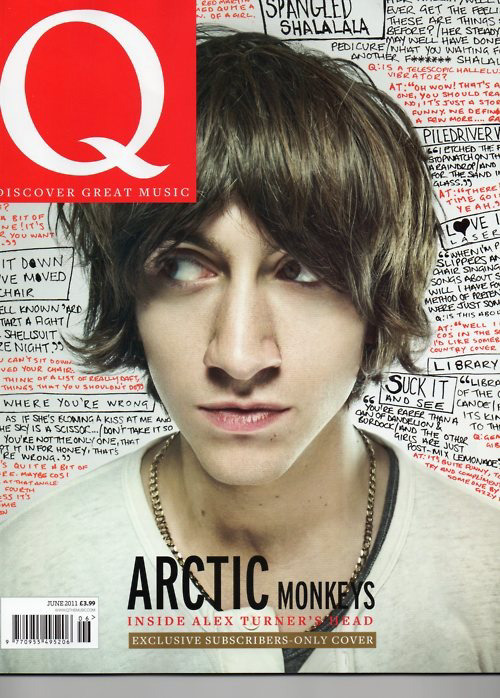

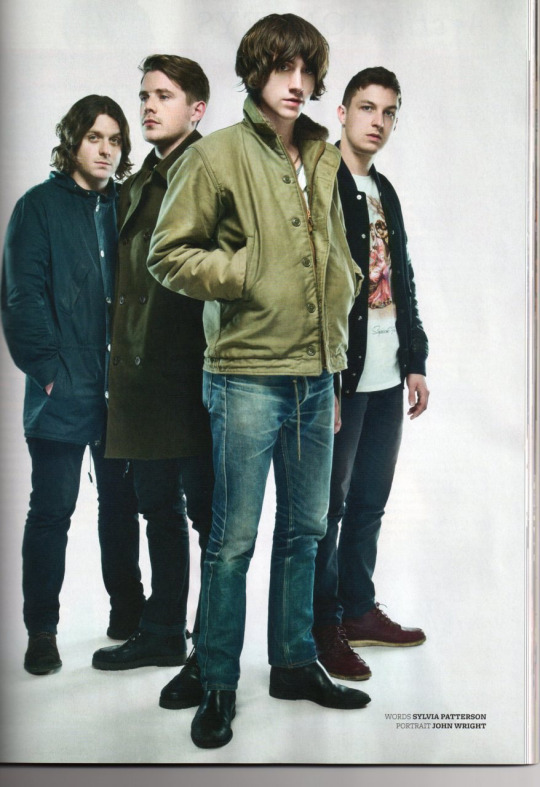
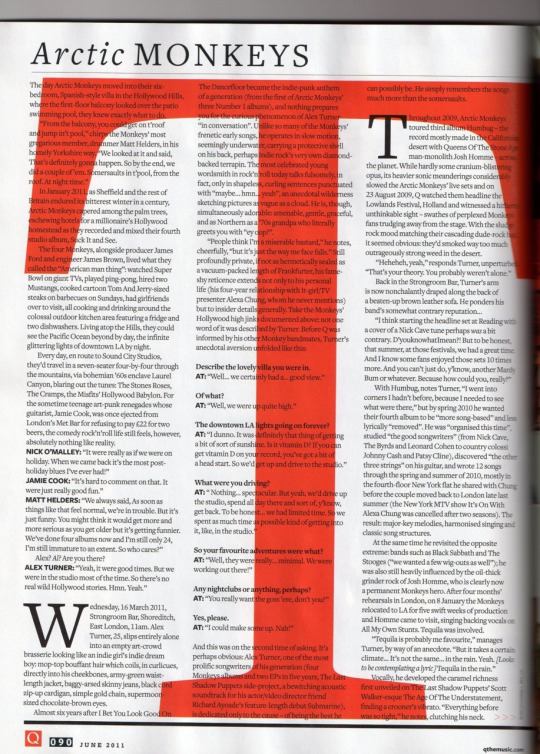

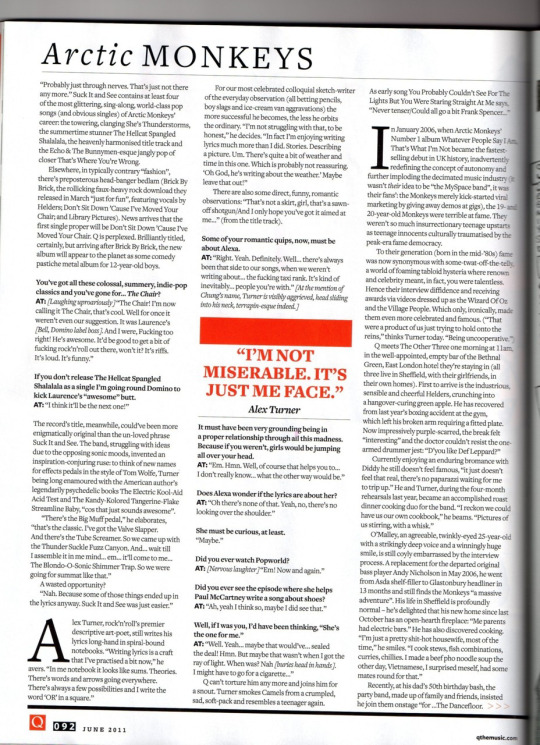


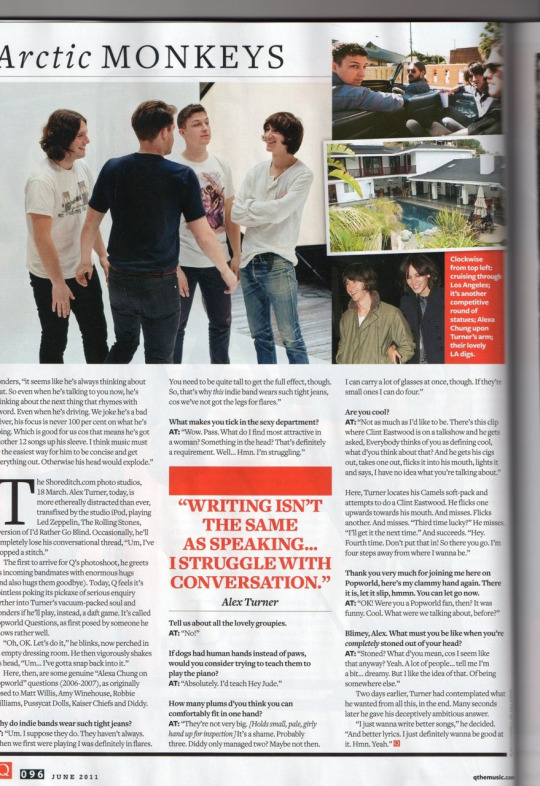
arctic monkeys for q magazine, june 2011 (x) (x)
ARCTIC MONKEYS: Inside Alex Turner's Head
Words Sylvia Patterson Portrait John Wright
The day Arctic Monkeys moved into their six bedroom, Spanish-style villa in the Hollywood Hills, where the first-floor balcony looked over the patio swimming pool, they knew exactly what to do.
"From the balcony, you could get on t'roof and jump in't pool," chirps the Monkeys' most gregarious member, drummer Matt Helders, in his homely Yorkshire way. "We looked at it and said, That's definitely gonna happen. So by the end, we did a couple of 'em. Somersaults in t'pool, from the roof. At night time."
In January 2011, as Sheffield and the rest of Britain endured its bitterest winter in a century, Arctic Monkeys capered among the palm trees, eschewing hotels for a millionaire's Hollywood homestead as they recorded and mixed their fourth studio album, Suck It and See.
The four Monkeys, alongside producer James Ford and engineer James Brown, lived what they called the "American man thing": watched Super Bowl on giant TVs, played ping-pong, hired two Mustangs, cooked cartoon Tom And Jerry-sized steaks on barbecues on Sundays, had girlfriends over to visit, all cooking and drinking around the colossal outdoor kitchen area featuring a fridge and two dishwashers. Living atop the Hills, they could see the Pacific Ocean beyond by day, the infinite glittering lights of downtown LA by night.
Every day, en route to Sound City Studios, they'd travel in a seven-seater four-by-four through the mountains, via bohemian 60s enclave Laurel Canyon, blaring out the tunes: The Stones Roses, The Cramps, the Misfits' Hollywood Babylon. For the sometime teenage art-punk renegades whose guitarist, Jamie Cook, was once ejected from London's Met Bar for refusing to pay €22 for two beers, the comedy rock'n'roll life still feels, however, absolutely nothing like reality.
NICK O'MALLEY: "It were really as if we were on holiday. When we came back it's the most post-holiday blues I've ever had!"
JAMIE COOK: "It's hard to comment on that. It were just really good fun."
MATT HELDERS: "We always said, As soon as things like that feel normal, we're in trouble. But it's just funny. You might think it would get more and more serious as you get older but it's getting funnier. We've done four albums now and I'm still only 24, I'm still immature to an extent. So who cares?"
Alex? Al? Are you there?
ALEX TURNER: "Yeah, it were good times. But we were in the studio most of the time. So there's no real wild Hollywood stories. Hmn. Yeah."
Wednesday, 16 March 2011, Strongroom Bar, Shoreditch, East London, 11am. Alex Turner, 25, slips entirely alone into an empty art-crowd brasserie looking like an indie girl's indie dream boy: mop-top bouffant hair which coils, in curlicues, directly into his cheekbones, army-green waist-length jacket, baggy-arsed skinny jeans, black cord zip-up cardigan, simple gold chain, supermoon sized chocolate-brown eyes.
Almost six years after I Bet You Look Good On The Dancefloor became the indie-punk anthem of a generation (from the first of Arctic Monkeys' three Number 1 albums), and nothing prepares you for the curious phenomenon of Alex Turner "in conversation". Unlike so many of the Monkeys frenetic early songs, he operates in slow motion, seemingly underwater, carrying a protective shell on his back, perhaps indie rock's very own diamond-backed terrapin. The most celebrated young wordsmith in rock'n roll today talks fulsomely, in fact, only in shapeless, curling sentences punctuated with "maybe... hmn.. yeah", an anecdotal wilderness sketching pictures as vague as a cloud. He is, though, simultaneously adorable: amenable, gentle, graceful, and as Northern as a 70s grandpa who literally greets you with "ey oop?".
"People think I'm a miserable bastard," he notes, cheerfully, "but it's just the way me face falls." Still profoundly private, if not as hermetically sealed as a vacuum-packed length of Frankfurter, his fante-shy reticence extends not only to his personal life (his four-year relationship with It-girl/TV presenter Alexa Chung, whom he never mentions) but to insider details generally. Take the Monkeys’ Hollywood high jinks documented above: not one word of it was described by Turner. Before Q was informed by his other Monkey bandmates, Turner’s anecdotal aversion unfolded like this:
Describe the lovely villa you were in. AT: "Well... we certainly had a... good view."
Of what? AT: "Well, we were up quite high."
The downtown LA lights going on forever? AT: "I dunno. It was definitely that thing of getting a bit of sort of sunshine. Is it vitamin D? If you can get vitamin D on your record, you've got a bit of a head start. So we'd get up and drive to the studio."
What were you driving? AT: "Nothing... spectacular. But yeah, we'd drive up the studio, spend all day there and sort of, y know, get back. To be honest... we had limited time. So we spent as much time as possible kind of getting into it, like, in the studio.
So your favourite adventures were what? AT: "Well, they were really… minimal. We were working out there!"
Any nightclubs or anything, perhaps? AT: "You really want the goss 'ere, don't you?"
Yes, please. AT: "I could make some up. Nah!"
And this was on the second time of asking. It's perhaps obvious: Alex Turner, one of the most prolific songwriters of his generation (four Monkeys albums and two EPs in five years, The Last Shadow Puppets side-project, a bewitching acoustic soundtrack for his actor/video director friend Richard Ayoade's feature-length debut Submarine), is dedicated only to the cause – of being the best he can possibly be. He simply remembers the songs much more than the somersaults.
Throughout 2009, Arctic Monkeys toured third album Humbug – the record mostly made in the Californian desert with Queens Of The Stone Age man-monolith Josh Homme – across the planet. While hardly some cranium-blistering opus, its heavier sonic meanderings considerably slowed the Arctic Monkeys' live sets and on 23 August 2009, Q watched them headline the Lowlands Festival, Holland and witnessed a hitherto unthinkable sight – swathes of perplexed Monkeys fans trudging away from the stage. With the sludge rock mood matching their cascading dude-rock hair it seemed obvious: they'd smoked way too much outrageously strong weed in the desert.
"Heheheh, yeah," responds Turner, unperturbed. "That's your theory. You probably weren't alone."
Back in the Strongroom Bar, Turner's arm is now nonchalantly draped along the back of a beaten-up brown leather sofa. He ponders his band's somewhat contrary reputation…
"I think starting the headline set at Reading with a cover of a Nick Cave tune perhaps was a bit contrary. D'youknowhat Imean?! But to be honest, that summer, at those festivals, we had a great time. And I know some fans enjoyed those sets 10 times more. And you can't just do, y’know, another Mardy Bum or whatever. Because how could you, really?"
With Humbug, notes Turner, "I went into corners I hadn't before, because I needed to see what were there," but by spring 2010 he wanted their fourth album to be "more song-based" and less lyrically "removed". He was "organised this time", studied "the good songwriters" (from Nick Cave, The Byrds and Leonard Cohen to country colossi Johnny Cash and Patsy Cline), discovered "the other three strings" on his guitar, and wrote 12 songs through the spring and summer of 2010, mostly in the fourth-floor New York flat he shared with Chung before the couple moved back to London late last summer (the New York MTV show It's On With Alexa Chung was cancelled after two seasons). The result: major-key melodies, harmonised singing and classic song structures.
At the same time he revisited the opposite extreme: bands such as Black Sabbath and The Stooges ("we wanted a few wig-outs as well"); he was also still heavily influenced by the oil-thick grinder rock of Josh Homme, who is clearly now a permanent Monkeys hero. After four months' rehearsals in London, on 8 January the Monkeys relocated to LA for five swift weeks of production and Homme came to visit, singing backing vocals on All My Own Stunts. Tequila was involved.
"Tequila is probably me favourite," manages Turner, by way of an anecdote. "But it takes a certain climate... It's not the same... in the rain. Yeah. [Looks to be contemplating a lyric] Tequila in the rain."
Vocally, he developed the caramel richness first unveiled on The Last Shadow Puppets' Scott Walker-esque The Age Of The Understatement, finding a crooner's vibrato. "Everything before was so tight,” he notes, clutching his neck. "Probably just through nerves. That's just not there any more." Suck It and See contains at least four of the most glittering, sing-along, world-class pop songs (and obvious singles) of Arctic Monkeys' career: the towering, clanging She's Thunderstorms, the summertime stunner The Hellcat Spangled Shalalala, the heavenly harmonised title track and the Echo & The Bunnymen-esque jangly pop of closer That's Where You're Wrong.
Elsewhere, in typically contrary "fashion", there's preposterous head-banger bedlam (Brick By Brick, the rollicking faux-heavy rock download they released in March "just for fun", featuring vocals by Helders; Don't Sit Down 'Cause I've Moved Your Chair, and Library Pictures). News arrives that the first single proper will be Don't Sit Down 'Cause I've Moved Your Chair. Q is perplexed. Brilliantly titled, certainly, but arriving after Brick By Brick, the new album will appear to the planet as some comedy pastiche metal album for 12-year-old boys.
You've got all these colossal, summery, indie-pop classics and you've gone for... The Chair? AT: [Laughing uproariously] "The Chair! I'm now calling it The Chair, that's cool. Well for once it weren't even our suggestion. It was Laurence's (Bell, Domino label boss). And I were, Fucking too right! He's awesome. It'd be good to get a bit of fucking rock'n'roll out there, won't it? It's riffs. It's loud. It's funny."
If you don't release The Hellcat Spangled Shalalala as a single I'm going round Domino to kick Laurence's "awesome" butt. AT: "I think it'll be the next one!"
The record's title, meanwhile, could've been more enigmatically original than the un-loved phrase Suck It and See. The band, struggling with ideas due to the opposing sonic moods, invented an inspiration-conjuring ruse: to think of new names for effects pedals in the style of Tom Wolfe, Turner being long enamoured with the American author's legendarily psychedelic books The Electric Kool-Aid Acid Test and The Kandy-Kolored Tangerine-Flake Streamline Baby, "cos that just sounds awesome".
"There's the Big Muff pedal," he elaborates, "That’s the classic. I've got the Valve Slapper. And there's the Tube Screamer. So we came up with the Thunder Suckle Fuzz Canyon. And… wait till I assemble it in me mind… em… it'll come to me… The Blonde-O-Sonic Shimmer Trap. So we were going for summat like that."
A wasted opportunity?
"Nah. Because some of those things ended up in the lyrics anyway. Suck It and See was just easier."
Alex Turner, rock'n'roll's premier descriptive art-poet, still writes his lyrics long-hand in spiral-bound notebooks. "Writing lyrics is a craft that I've practised a bit now," he avers. "In me notebook it looks like sums. Theories. There's words and arrows going everywhere. There's always a few possibilities and I write the word 'OR' in a square."
For our most celebrated colloquial sketch-writer of the everyday observation (all betting pencils, boy slags and ice-cream van aggravations) the more successful he becomes, the less he orbits the ordinary. "I'm not struggling with that, to be honest," he decides. "In fact I'm enjoying writing lyrics much more than I did. Stories. Describing a picture. Um. There's quite a bit of weather and time in this one. Which is probably not reassuring. 'Oh God, he's writing about the weather.' Maybe leave that out!"
There are also some direct, funny, romantic observations: "That's not a skirt, girl, that's a sawn-off shotgun/And I only hope you've got it aimed at me..." (from the title track).
Some of your romantic quips, now, must be about Alexa. AT: "Right. Yeah. Definitely. Well... there's always been that side to our songs, when we weren't writing about... the fucking taxi rank. It's kind of inevitably... people you're with." [At the mention of Chung's name, Turner is visibly aggrieved, head sliding into his neck, terrapin-esque indeed.]
It must have been very grounding being in a proper relationship through all this madness. Because if you weren't, girls would be jumping all over your head. AT: "Em. Hmn. Well, of course that helps you to... I don't really know.. what the other way would be."
Does Alexa wonder if the lyrics are about her? AT: "Oh there's none of that. Yeah, no, there's no looking over the shoulder."
She must be curious, at least. "Maybe."
Did you ever watch Popworld? AT: [Nervous laughter] "Em! Now and again."
Did you ever see the episode where she helps Paul McCartney write a song about shoes? AT: "Ah, yeah I think so, maybe I did see that."
Well, if I was you, I'd have been thinking, "She's the one for me." AT: "Well. Yeah... maybe that would've... sealed the deal! Hmn. But maybe that wasn't when i got the ray of light. When was? Nah [buries head in hands]. I might have to go for a cigarette..."
Q can't torture him any more and joins him for a snout. Turner smokes Camels from a crumpled, sad, soft-pack and resembles a teenager again. As early song You Probably Couldn't See For The Lights But You Were Staring Straight At Me says, "Never tenser/Could all go a bit Frank Spencer…”
In January 2006, when Arctic Monkeys' Number 1 album Whatever People Say I Am, That's What I'm Not became the fastest-selling debut in UK history, inadvertently redefining the concept of autonomy and further imploding the decimated music industry (& wasn't their idea to be "the MySpace band", it was their fans': the Monkeys merely kick-started viral marketing by giving away demos at gigs), the 19- and 20-year-old Monkeys were terrible at fame. They weren't so much insurrectionary teenage upstarts as teenage innocents culturally traumatised by the peak-era fame democracy.
To their generation (born in the mid-'80s) fame was now synonymous with some-twat-off-the-telly a world of foaming tabloid hysteria where renown and celebrity meant, in fact, you were talentless. Hence their interview diffidence and receiving awards via videos dressed up as the Wizard OfOz and the Village People. Which only, ironically, made them even more celebrated and famous. (“That were a product of us just trying to hold onto the reins," thinks Turner today. "Being uncooperative.")
Q meets The Other Three one morning at 11am, in the well-appointed, empty bar of the Bethnal Green, Bast London hotel they're staying in (all three live in Sheffield, with their girlfriends, in their own homes). First to arrive is the industrious, sensible and cheerful Helders, crunching into a hangover-curing green apple. He has recovered from last year's boxing accident at the gym, which left his broken arm requiring a fitted plate. Now impressively purple-scarred, the break felt "interesting" and the doctor couldn't resist the one-armed drummer jest: "D'you like Def Leppard?"
Currently enjoying an enduring bromance with Diddy, he still doesn't feel famous, "it just doesn't feel that real, there's no paparazzi waiting for me to trip up." He and Turner, during the four-month rehearsals last year, became an accomplished roast dinner cooking duo for the band. "I reckon we could have us our own cookbook," he beams. "Pictures of us stirring, with a whisk."
O'Malley, an agreeable, twinkly-eyed 25-year-old with a strikingly deep voice and a winningly huge smile, is still coyly embarrassed by the interview process. A replacement for the departed original bass player Andy Nicholson in May 2006, he went from Asda shelf-filler to Glastonbury headliner in 13 months and still finds the Monkeys "a massive adventure". His life in Sheffield is profoundly normal – he's delighted that his new home since last October has an open-hearth fireplace: "Me parents had electric bars." He has also discovered cooking. “I’m just a pretty shit-hot housewife, most of the time," he smiles. "I cook stews, fish combinations, curries, chillies. I made a beef pho noodle soup the other day, Vietnamese, I surprised meself, had some mates round for that."
Recently, at his dad's 50th birthday bash, the party band, made up of family and friends, insisted he join them onstage "for ...The Dancefloor. So I were up there [mimes playing bass, all sheepish] and it were the wrong pitch, they didn't know the words or 'owt, going, Makin eyes... er..." He has no extra-curricular musical ambitions. "I'm happy just playing bass," he smiles. "I've never had the skill of doing songs meself. It'd be shit!"
Cook, 25, is still spectacularly embarrassed by the interview process. He perches upright, with a fixed nervous smile, newly shorn of the beard and ponytail he sported in LA: "Rockin' a pone, yeah, because I could get away with it." With his classic preppy haircut and dapper green military coat (from London's swish department store, Liberty), he looks like a handsome '40s film star. (Turner deems Cook "the band heartbreaker" and had a word with him post-LA: "I said to him, Come on, mate, you've got to get that beard shaved off. Get the girls back into us. Shift some posters.")
His life in Sheffield is also profoundly normal. He still plays Sunday League football with his local pub team, The Pack Horse FC (position, left back), remains in his long-term relationship with page-three-model-turned-make-up-artist Katie Downes and "potters about" at home, refusing to describe said home, "cos I'll get burgled".
A tiler by trade, he always vowed, should the Monkeys sign a deal, that he'd throw his trowel in a Sheffield river on his last day of work. "I never did fling me trowel," he confirms. "Probably still in me shed." He's never considered what his band represents to his generation. "I'd go insane thinking about it, I'm pretty good at not thinking about it… Oh God. I'm terrible at this!"
Back in the Strongroom Bar, Alex Turner is cloudily describing his everyday life. "I just keep meself to meself," he confounds. He mostly stays indoors and his perfect night in with Alexa is "watching loads of Sopranos. And doing roast dinners".
No longer spindle-limbed, he attends a gym and has handsomely well-defined arms – "You have to look after yourself."
Suddenly, Crying Lightning from Humbug rumbles over the bar stereo. "Wow. How about that? I was quite happy the other morning cos Brick By Brick were on the round-up goals on Soccer AM. It's still exciting when that happens. It was like Brick By Brick is real."
He spends his days writing music, "listening to records", and recommends Blues Run The Game by doomed '60s minstrel Jackson C Frank ("who's that lass?... Laura Marling, she did a cover recently), a simple, acoustic, deep and regretful stunner about missing someone on the road.
Lyrically, he cites as an example of greatness the Nick Cave B-side Little Empty Boat [from ‘97 single Into My Arms ], a comically sinister paean to a sexual power struggle: "Your knowledge is impressive and your argument is good/But I am the resurrection babe and you're standing on my foot."
"I need a hobby," he suddenly decides. "I'd like to learn another language." Since his mum is a German teacher (his dad teaches music), surely he can speak some German? "I know how to ask somebody if they've had fun at Christmas." Go on, then. "Nah!"
Where Turner's creative gifts stem from remains a contemporary rock'n'roll mystery; he became a fledgling songwriter at 16, after the gift of a guitar at Christmas from his parents. An only child, did his folks, perhaps, foresee artistic greatness? "I doubt it!" he balks. "Cos I didn't. I wasn't... a show kid." Like the others, he doesn't analyse the past, or the future.
"You can't constantly be thinking about what's happened," he reasons, "it's just about getting on with it." The elaborate pinky ring he now constantly wears, however, a silver, gold and ruby metal-goth corker featuring the words DEATH RAMPS is a permanent reminder of he and his best friends’ past. The Death Ramps is not only a Monkeys pseudonym and B-side to Teddy Picker, but a place they used to ride their bikes in Sheffield as kids.
"Up in the woods near where we lived," he nods. "Just little hills. But when you're eight years old they're death ramps." The ring was custom made by a friend of his, who runs top-end rock'n'roll jewellery emporium The Great Frog near London's Carnaby Street. Ask Turner why he thinks the chase between his writing and speaking eloquence is quite so mesmerisingly vast and he attempts a theory.
"Well, writing isn't the same as speaking," he muses. "Not for me. I seem to struggle more and more with... conversation. Talking onstage... I can't do it any more. Hmn. I'll have to work on that."
The ever-helpful Helders has a better theory.
"Since he's been writing songs," he ponders, “It seems like he’s always thinking about that. So even when he’s talking to you now, he’s thinking about the next thing that rhymes with a word. Even when he’s driving. We joke he’s a bad driver, his focus is never 100 per cent on what he’s doing. Which is good for us cos it means he’s got another 12 songs up his sleeve. I think music must be the easiest way for him to be concise and get everything out. Otherwise his head would explode.”
The Shoreditch.com photo studios, 18 March. Alex Turner, today, is more ethereally distracted than ever, transfixed by the studio iPod, playing Led Zeppelin, The Rolling Stones, a version of I’d Rather Go Blind. Occasionally, he’ll completely lose his conversational thread, “Um. I’ve dropped a stitch.”
The first to arrive for Q’s photoshoot, he greets his incoming bandmates with enormous hugs (and also hugs them goodbye). Today, Q feels it’s pointless poking its pickaxe of serious enquiry further into Turner’s vacuum-packed soul and wonders if he’ll play, instead, a daft game. It’s called Popworld Questions, as first posed by someone he knows rather well.
“Oh, OK. Let’s do it,” he blinks, now perched in an empty dressing room. He then vigorously shakes his head, “Um…I’ve gotta snap back into it.”
Here, then, are some genuine “Alexa Chung on Popworld” questions (2006-2007), as originally posed to Matt Willis, Amy Winehouse, Robbie Williams, Pussycat Dolls, Kaiser Chiefs and Diddy.
Why do indie bands wear such tight jeans? AT: “Um. I supposed they do. They haven’t always. When we first were playing I was definitely in flares. You need to be quite tall to get the full effect, though. So, that's why this indie band wears such tight jeans, cos we've not got the legs for flares."
What makes you tick in the sexy department? AT: "Wow. Pass. What do I find most attractive in a woman? Something in the head? That's definitely a requirement. Well... Hmn. I'm struggling."
Tell us about all the lovely groupies. AT: "No!"
If dogs had human hands instead of paws, would you consider trying to teach them to play the piano? AT: "Absolutely. I'd teach Hey Jude."
How many plums d'you think you can comfortably fit in one hand? AT: "They're not very big. [Holds small, pale, girly hand up for inspection] It's a shame. Probably three. Diddy only managed two? Maybe not then. I can carry a lot of glasses at once, though. If they're small ones I can do four."
Are you cool? AT: "Not as much as I'd like to be. There's this clip where Clint Eastwood is on a talkshow and he gets asked, Everybody thinks of you as defining cool, what d'you think about that? And he gets his cigs out, takes one out, flicks it into his mouth, lights it and says, I have no idea what you're talking about."
Here, Turner locates his Camels soft-pack and attempts to do a Clint Eastwood. He flicks one upwards towards his mouth. And misses. Flicks another. And misses. "Third time lucky?" He misses. "I'll get it the next time." And succeeds. "Hey. Fourth time. Don't put that in! So there you go. I'm four steps away from where I wanna be."
Thank you very much for joining me here on Popworld, here's my clammy hand again. There it is, let it slip, hmmn. You can let go now. AT: "OK! Were you a Popworld fan, then? It was funny. Cool. What were we talking about, before?"
Blimey, Alex. What must you be like when you're completely stoned out of your head? AT: "Stoned? What d'you mean, cos I seem like that anyway? Yeah. A lot of people... tell me I'm a bit... dreamy. But I like the idea of that. Of being somewhere else."
Two days earlier, Turner had contemplated what he wanted from all this, in the end. Many seconds later he gave his deceptively ambitious answer.
"I just wanna write better songs," he decided. "And better lyrics. I just definitely wanna be good at it. Hmn. Yeah.”
—
RUFUS BLACK: AKA Matt Helders, on his ongoing bromance with Diddy
Matt Helders has known preposterous rap titan Diddy since they met in Miami in 2008. “He goes, Arctic Monkeys! Then he said summat about a B-side and I was like, He's not lying! I just thought, This is funny, I'm gonna go with this for a while." Last October Diddy texted Helders, suggesting he play drums with his Diddy Dirty Money band on Friday Night With Jonathan Ross, to give his own drummer a day off. “I were bowling with me girifriend at the time. In Sheffield, on a Sunday." On the day of recording, says Helder, "We had a musical director. That were one of the maddest times of my life. Next day Diddy said, Why don't you just stay? Come along with me. So I went everywhere with him." Diddy had "a convoy of cars" and made sure Helders was always in his. "He'd stop his car and go, Where's Matt? You're coming with me! So I'd get in his car. Just me, him, his security, driver." Diddy, by now, had given him a pseudonym - Rufus Black. "He kept saying, I don't wanna fuck up your image. And I'm, I don't think it's gonna do me any harm!" He stayed in Diddy's spectacularly expensive hotel. Some weeks later, Helders almost returned to the Dirty Money drumstool for a gig in Glasgow. "But we were rehearsing in London. I were like, I might come, how are you getting there? And he were like, Jet. Jump on t’jet with me. But I had to stay in Bethnal Green instead.”
Love’s young dream: Diddy (left) with Helders
#arctic monkeys#alex turner#matt helders#nick o'malley#jamie cook#sias era#interviews#q magazine#my image id#bands#this is such a funny interview honestly shfjwjs#self proclaimed housewife nick my beloved......#also why did the interviewer describe alex's hands as small pale and girly HELPME#btw im missing page 93 it's probabky just a photospread but yeah#i managed to find the dead links' images on vk#eye contact#not my scan
290 notes
·
View notes
Text
𝐇𝐚𝐩𝐩𝐲 𝐄𝐧𝐝𝐢𝐧𝐠 | 𝐂𝐡𝐚𝐩𝐭𝐞𝐫 𝐅𝐢𝐯𝐞

Pairing | Yandere Jungkook x Reader
Word Count | 1,529
Warnings | +18, detailed descriptions of punishment, spanking, Jungkook is obsessed and angry, smut dubcon(?), fingering, male masturbation, forced cum consumption

This does not reflect my way of thinking or living at all, it is just a work of fiction, it is like watching a horror movie, many of us love horror movies, but we would never dream of what we see in those movies happening in reality as well.
Simply put, this story was written for entertainment purposes, it should not be seen as a reflection of my values, opinions or morals. I absolutely do not condone such acts.

⤷ Summary | If she had paid attention earlier to the sin that dwelt behind those obsidian irises, she would never have trusted it.
If she had noticed earlier the devouring love that dwelled in his corrupt heart, she probably would have fled.
She had done none of that, and now she had to come to terms with her new reality.

➢ Author's Note | Fifth chapter ready! Let me know what you think of the story or if you would like to be added to the taglist, i would be really happy!

Taglist: @katherine-kookie, @douknowbts, @aiiselle90210, @fewercascade
Taglist is open!

Chapter List - I - II - III - IV - V - VI - VII - VIII / The End



It had been exactly four days, Y/N had been locked in that room crying, eating what she had to eat so as not to upset Jungkook, but the sadness and disgust were still there. She still couldn't tell if it was for him or for herself. He spent those nights as tense as a violin string, going to work during the day and hermetically locking the front door, and at night he heard her crying and that upset him. But he had factored that in as well, Jimin had explained to him how the first few days had gone. "It's going to be hard, but if you love her you'll have to put up with it," the blond man in the principal's office had told him, while Seokjin just listened, typing occasionally on his phone. "I hate to see her so dejected, I'm the cause and that hurts me," he had hissed with his head clenched in his hands, Jimin had denied it with his head, totally frosty. "You are just too sensitive, she has to get used to a new way of life and certain reactions are more than normal, my wife had tried to kill me if you remember well, so consider yourself lucky," he scolded him. "Besides," Seokjin exclaimed, "her parents reported her missing and everyone thinks something happened to her, even the neighborhood she lived in was a good cover, don't think of stopping just now." Jungkook nodded, before freezing.
"What about Kang Yoozu?" he asked, threateningly. Jimin let go of an icy smile, "You don't have to worry about him anymore, with the material you provided me, there will be fun to be had." A few days later, Jungkook understood his friend's words, it was all over the news that Kang Yoozu, age twenty-three, had kidnapped and most likely tortured the now missing Y/N. It had only taken a few rumors put out there and a lock of the girl's hair found in the student's backpack to set off alarm bells. Jungkook thought Jimin had done a masterful job; everyone knew about Yoozu's bullying of Y/N, and as Jungkook had said at the beginning, it was those like Yoozu who had no loyal friends.
At the dinner table that evening, Jungkook avoided turning on the television, not wanting the girl to see anything inherent in her disappearance; she seemed upset enough to the boy, so he asked her how she felt. "Like someone who hasn't seen the light of day for almost a week," she hissed, listlessly moving the contents of her plate. "When I'm sure I can trust you, I'll take you for walks," he tried to appease her, but at those words Y/N huffed blatantly, which the man did not like. "Y/N." "Jungkook?" she wryly made, openly challenging him after days of unexpressed discontent, "I'm not even allowed to complain, professor?" The ass-grabbing behind that title pissed him off, and he jerked out of his chair and marched toward her with an expression that was anything but sweet and patient, as it had always been until moments before. Y/N caught the danger signal and tried to evade him, but Jungkook was quicker and caught her lifting her off the ground as if she had been a feather, at which point the girl screamed and full-throated, kicking in his direction, intimidating him to put her down, terrified by the man's sudden change.
Jungkook was not frightened by her hysterical threats, after all, there were not even neighbors who could hear them, and he flung her onto the living room sofa, the girl ended up between the cushions on all fours, tried to get up so she could stare openly into his eyes, but Jungkook imposed that position on her by crushing her with his own weight, in fear she felt the young man's hands lift the fabric of the skirt he had given her that day, she tried to crawl away, but once again she was blocked by him, a strong hand of the man held her head still against the cushions. She shuddered in shock when her panties were also brutally lowered onto her thighs, she felt so much embarrassment that she squeezed her eyes shut, trying to extricate herself. "Rule number one, Y/N, don't ever use that tone with me," he hissed furiously, before his free hand came down on a soft buttock of the young woman, who squealed in shock and pain at the searing lash, the dry sound lost in the room along with her voice.
Jungkook settled down better behind her, taking sadistic pleasure in seeing his imprint getting darker and darker on her tender and delicate skin, "Rule number two, finish your meal without complaining like a naughty and rude child," he hit the same area of skin with an even more deafening spanking than the previous one, the girl wriggled in tears under his body, Jungkook felt the blood run miles through his veins, his cock now throbbing in his pants at that fantastic sight. Adrenaline raced through his body, painfully clutching Y/N's hair in its hard grip. "Rule number three, never question what I say to you in that insolent way!" he continued to hit her repeatedly on the other side as well, ignoring the tears now soaking the cushions of his couch or the girl's constant attempt to slip away from his blows, writhing. He stopped only when the girl began to give in, begging him to stop. "P-Please stop!" she screamed against the fabric of the cushions, "I'm sorry, I'm sorry! I'll be good, I won't misbehave anymore," she continued, Jungkook pulled away slightly, watching with hungry eyes the buttocks now red and irritated by his punishing blows, the girl's body trembling, shaken by sobs and whimpers.
"Ah..." he sighed, "My love," he murmured bending over her, tenderly kissing the skin now burned and alive with pain, the girl tried to block her sobs, feeling only more discomfort at the boy's attentions, who not content left a long trail of saliva from the abused area to the column of her back, stopping shortly after at a corner of her neck, Y/N shuddered, feeling him push the covered cock against her buttocks which, if possible, burned even more. Jungkook sucked and bit the skin of her neck expertly, Y/N did not have the strength to evade, not even when one of the man's hands descended on her pussy . "Since you get it... you deserve a reward, don't you?" he highlighted those sick words of his with another thrust of his pelvis, "I'm going to make you feel so good, love," he moaned, running two fingers along the folds of the girl, who widened her eyes at the same time Jungkook did, finding her soaking and quivering, "Fuck. .. you liked it," he laughed surprised, Y/N instead wanted to disappear, tried to stop her moans by sealing her lips, shocked by that new realization, but she tensed at the rhythmic and insistent movement of the fingers around her taut and shiny clitoris, no ... it couldn't be true.
She could not feel pleasure at such a time, with such a boy! But her body thought otherwise when the man's fingers tapped on her clitoris, which contracted and forced the girl's hips to push against the young man's hand involuntarily, seeking a more direct and steady touch. She opened her mouth wide for air, but was only able to gasp for breath, only causing Jungkook to increase the speed of his intimate caresses, reaching up to penetrate her lightly with the tip of his fingertips, Y/N stiffened writhing wordlessly, her brain now mush thinking only of finding more friction, which Jungkook granted her with a kiss in her hair, slipping his fingers from her tight slit to move up toward her clit, rubbing on the now overly sensitive pearl, he expertly pinched one last time before and Y/N let out a choked scream that confirmed her orgasm, which continued to shake her body for endless minutes. Now almost fainting in his arms, Jungkook turned her body over, lost himself in looking at her distraught face before glancing at her soaked red intimacy, biting his lip, god he couldn't take it anymore.
He began to unbuckle the belt from his pants, releasing the thick, throbbing cock without lowering anything else, reached up to the young girl's tear- and saliva-wet lips, running the already wet tip of white, shiny cum over them, cupped his hand several times over the velvety, warm skin of his cock, continued to pump himself, moaning loudly, he accompanied the gestures with sloppy, slick movements of his hips, Y/N barely registered the boy's actions, too shocked by what had happened, a choked scream escaped her throat as a warm, foreign-tasting substance poured onto her face and hair, a few drops managed to enter her mouth as well, only later did she realize what it was. Jungkook slipped two fingers into her mouth, filling her with his cum, forcing it to the back of her throat, which made the girl swallow for air. "My beautiful girl is also a perfect slut for my cock."



#bts#bts fanfiction#bts smut#bts x reader#yandere bts#yandere bts x reader#yandere jungkook x reader#yandere jungkook#bts yandere smut#yandere bts smut#jungkook x reader#bts fanfic#yandere#yandere jeongguk#jeongguk x reader#jeon jungkook x reader
244 notes
·
View notes
Photo
#i did have a dream about deathly weapons once
Come now, @mygoldfishateit, you can’t just put that in the tags and not elaborate.
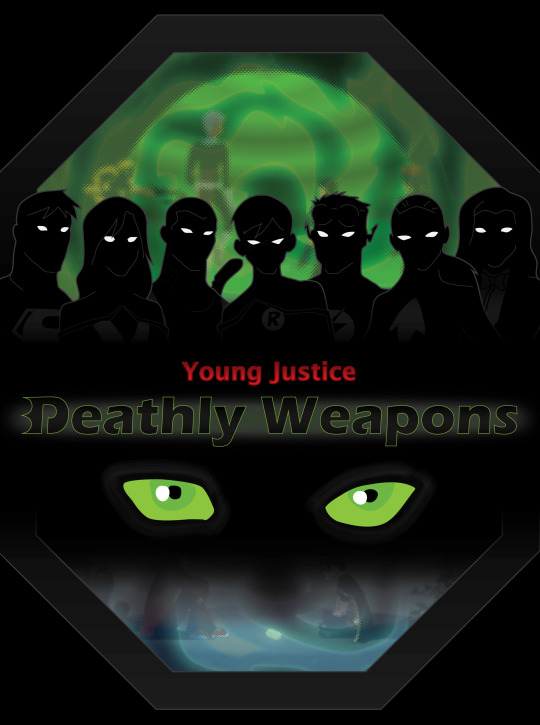
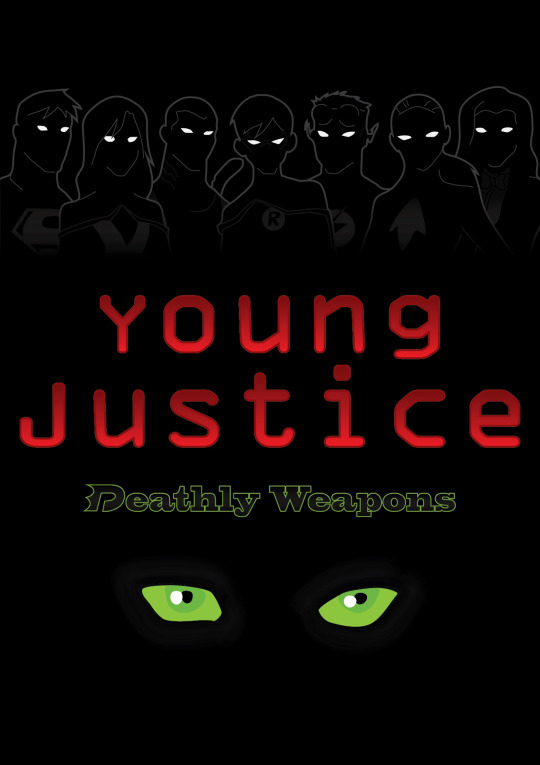
Decided to update the original FFN-style ‘book cover’ art for my fanfic Young Justice: Deathly Weapons.
It’s fun to see how the visual identity of this fic has evolved from when I first came up with and posted the initial idea (right) to now (left) that it has a fully-detailed plan that’s developed a vibe of its own.
[Art pieces inside the background-portals can be seen here and here. Teaser summary for upcoming “episodes” here.]
Keep reading
#Okay well actually you can. And if you don't feel comfortable sharing then I fully respect your right to that#but I am utterly DELIGHTED and INTRIGUED#I remember so few of my own dreams#and most of the ones I do are just... abstract surreal trippiness#One time I dreamt about Miss Martian catching busses around Gotham City trying to find Batman#Also Hi yes. I Do read the tags people leave on my posts#I am here for the conversation and I love hearing what other people think#I might curate my posted content but it is an interactive exhibit not a hermetically sealed collector's gallery#I love when people pick up my figurines and scribble in the guest book on the way past#(also how funny would it be if your unconscious mind managed to figure out the twists from the early-game clues?)#(literally solving my story in your sleep that would be the BEST joke)`#mygoldfishateit#3WD
127 notes
·
View notes
Text

Sculpture by Ann Harrington
#art#whimsigoth#witchy#moodyvibes#whimsicore#esoteric#dreamcore#whimiscal#fairycore#dream aesthetic#grungy nature#goth art#spider#bat#oddities#oddity art#gothic#mystical#hermetic#symbolism#dark nature#grungey#emo#moody art#goth fairy#metal crafts#metalwork#magick
2K notes
·
View notes
Text
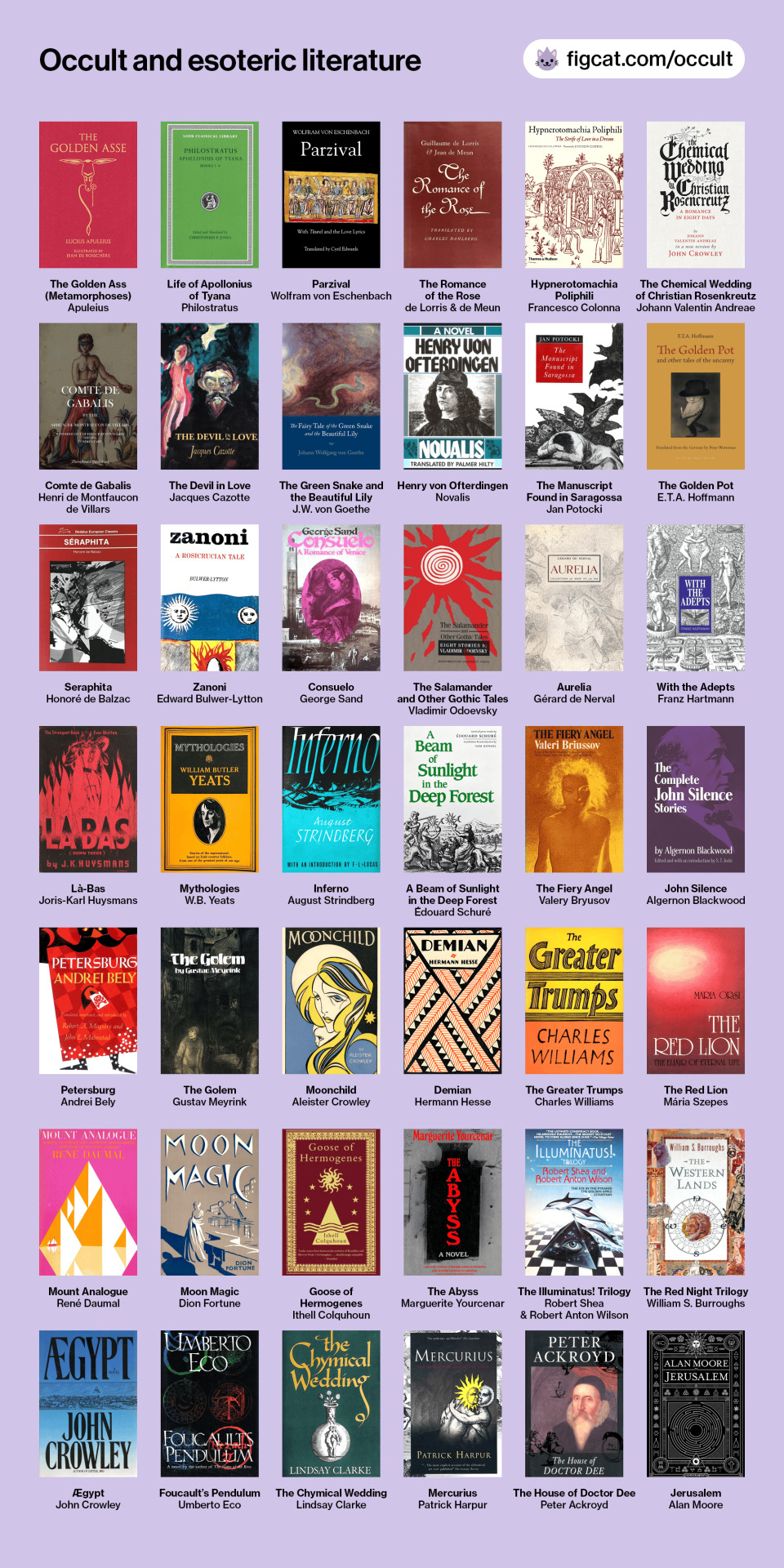
Occult and esoteric fiction reading list
A selection of literary works inspired or influenced by various currents of Western esoteric tradition and occultism, spanning from late antiquity to the present day. Includes historical novels about mages and alchemists, initiatory Rosicrucian romances, hermetic allegorical dream visions, gothic tales of elemental spirits, occult detective stories, satirical conspiracy thrillers, and more!
This chart was based on my longer list of 125 works of occult, esoteric, and initiatory fiction and poetry.
#book list#book recommendations#book recs#reading list#occult#occultism#magick#esoteric#esotericism#occult fiction#alchemy#rosicrucian#hermetic#occult books
102 notes
·
View notes
Text
Assorted Pharos/Ryoji Thoughts
So, huh, don’t expect something too meaningful or conclusive for this. It’s quite literally just me rambling about the possible connections and influences Pharos and Ryoji have as they come. Quite messy, and it may not make much sense…
Phallus and Birds
As I said in my post about Nyx, Pharos’ japanese name (“ファルロス”) isn’t a word that exists. It’s a combination of “ファルス” (“Phallus”) and “ファロス” (“Pharos”, as in the lighthouse of Alexandria). The two of them mark him as the masculine aspect of the Star Eater (i.e., its psyche), while its body remains as the feminine or maternal one.
“In this sense, the concept of matter is also only one archetypal representation among many others; indeed the concept of matter derives from the archetype of the Great Mother. [...] The archetype of the Father, that is, of the mind, is the polar opposite.” - Psyche and Matter, by Marie-Louise von Franz.
This divide is important to make clear, since it harks back to one of the fundamental inspirations mentioned by the FES Fan Book: Jung’s childhood dream about “Father Phallos”. I’m not going to explain it since it’s somewhat long, but the gist is that it acted as one of the foundations of Jung’s work, as seen with Seven Sermons to the Dead:
“Spirituality conceiveth and embraceth. It is womanlike and therefore we call it mater coelestis, the celestial mother. Sexuality engendereth and createth. It is manlike, and therefore we call it phallos, the earthly father.” - Sermo V.
I’m not going into detail about what Jung exactly meant by “womanlike” or “manlike” beyond pointing out it is more akin to the Yin and Yang division, but through western or hermetic lens.
While the parts of sexuality and creativity are better represented by Ryoji for obvious reasons, the identification between Pharos and Father Phallos is still important because it points to the former’s future as the “son” or “avatar” of “Dea Luna Satanas”.
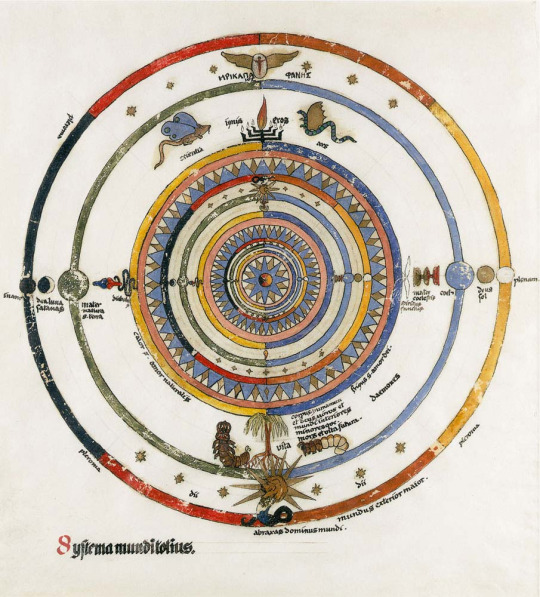
I put Systema Munditotius here again because it’s a graphical summary of the cosmology and psychological principles presented in Seven Sermons, showing how the human mind is a whole that encompasses all dualities. But instead of focusing on the vertical axis this time, I’m going to explain the horizontal one, where we can see:
The Emptiness (the black circle named “Inane”) at the leftmost extreme, whose dissolving and destructive capacities are manifested in the figure of “the Devil”, represented by the waxing moon—the so-called “Dea Luna Satanas” or “Goddess Moon Satan”.
The Fullness (the white circle named “Plenum”) at the rightmost extreme, with its creative capacities manifesting in the golden circle called “Deus Sol”, the Godly Sun.
Now, despite the presence of another Devil-like figure in the series (Nyarlathotep, with the japanese version of Eternal Punishment directly calling him “the archetype that destroys humans egos”), it’s undeniable the connection between Nyx as the moon and, well, the lunar Satan described in the Sermo IV:
“The dark gods form the earth-world. They are simple and infinitely diminishing and declining. The devil is the earth-world’s lowest lord, the moon-spirit, satellite of the earth, smaller, colder, and more dead than the earth.”
And that’s where the other half of the left side enters: the Devil-Moon is the root of everything that’s “physical”, the “visible” and “sensual” spirits of earth (the green circle named “Mater Natura”) that manifest through the sexuality of the Phallos, who lies in the “depths of the earth” according to Jung’s dream—in the unconscious, with the Dark Hour being a symbol of it. That’s to say, Father Phallos and thus Pharos are the result of the countless souls that are attached to earth, of people dead in spirit and alive in bodies—of the Lost, and those who transmogrify each night, and those who have lost all hope.
However, unlike Pharos, the Avatar doesn’t show many “sensual” details, despite the entire Fool’s Journey it/he recited being a perfect metaphor of the earthly/gross side of life (i.e., you are born, you grow, you die); on the contrary, it presents a couple of celestial characteristics. The meaning of these properties lie on the other half of the right hemisphere, in the heavenly sphere that the wise kin of the Sun inhabits, communicating with the receptive nature of the human soul (or Celestial Mother) in the form of a white bird—the Holy Spirit.
“The white bird is a half-celestial soul of man. He bideth with the Mother, from time to time descending. The bird hath a nature like unto man, and is effective thought. He is chaste and solitary, a messenger of the Mother. He flieth high above earth. He commandeth singleness. He bringeth knowledge from the distant ones who went before and are perfected. He beareth our word above to the Mother.” - Sermo VI.
Yet, due to Nyx’s body being a shadowy reflection of the Heavenly Mother, it’s to be expected the Bird too becomes twisted, from a pure white dove into a pitch-black crow. There’s no need to go over all the references to black birds during the game, from Tartarus to Nyx Avatar—the messenger or “angel” of Nyx.
So, on one side we have Death as a Shadow, primitive and all-consuming, and on the other we have Ryoji, a conscious being filled to the brim with love and energy. Pharos is, then, the in-between, the liminal state between consciousness and unconsciousness, a baby that’s trying to break free from the grip of the unconscious’ “womb”, yet joins the “divine” with the mortal.
“The "child" is born out of the womb of the unconscious, begotten out of the depths of human nature, or rather out of living Nature herself. It is a personification of vital forces quite outside the limited range of our conscious mind; of ways and possibilities of which our one-sided conscious mind knows nothing; a wholeness which embraces the very depths of Nature.” - Archetypes and the Collective Unconscious.
Be it from Nyx or the protagonist/Makoto himself, Death/Pharos/Ryoji, from the moment his being was fragmented, sought separation and division, to know where his essence began and ended. He was trying to create himself. That’s the most beneficial manifestation of the Phallos: the birth of a “sun” or (primitive) consciousness through the active energy of the unconscious.
“The psychic life-force, the libido, symbolizes itself in the sun or personifies itself in figures of heroes with solar attributes. At the same time it expresses itself through phallic symbols.” - Symbols of Transformation.
An event comparable to the separation of the waters through the spirit (or “dove”) of God himself, or to the eating of the fruit of knowledge upon the serpent’s goading. That’s to say, a manifestation of the beginning of individuation, the development of the—his—Self out of the unconscious’ waters.

Introversion and Extraversion
Makoto is introverted, and Ryoji extraverted.
…
Okay. That isn’t something new, like, at all. But it’s a good start, since I’m not referring to the popular conception that we have of introversion and extraversion, but to the jungian one, explained in Psychological Types:
“The introvert’s attitude is an abstracting one; at bottom, he is always intent on withdrawing libido from the object, as though he had to prevent the object from gaining power over him. The extravert, on the contrary, has a positive relation to the object. He affirms its importance to such an extent that his subjective attitude is constantly related to and oriented by the object.”
I went into a deeper explanation in my post about Philemon’s and Nyarlathotep’s Types, but the above is the main idea: the introverted individual focuses inwards, in the inner realm of the universal “subjective factor” or unconscious, and the extraverted individual focuses their energy into the external world and its objects, relating to the present. As a compensatory method, the differentiated attitude of consciousness will be opposed by the acquisition of the contrary attitude within the unconscious, giving rise to psychic wholeness and certain peculiarities that, for the moment, aren’t important.
Now, with that out of the way, I want to focus on a particular scene described by the book, about an interpretation about Spitteler’s “Prometheus and Epimetheus”, with Jung concluding that the brothers are representations of introversion and extraversion respectively:
“For just as Prometheus makes all his passion, his whole libido flow inwards to the soul, to his innermost depths, dedicating himself entirely to his soul’s service, so God pursues his course round and round the pivot of the world and exhausts himself exactly like Prometheus, who is near to self-extinction. All his libido has gone into the unconscious, where an equivalent must be prepared; for libido is energy, and energy cannot disappear without a trace, but must always produce an equivalent. This equivalent is Pandora and the gift she brings to her father: a precious jewel which she wants to give to mankind to ease their sufferings.”
Prometheus parted ways with the outer world to focus completely on his soul, the realm of the unconscious and his Anima. Understanding that libido can be symbolized by fire, light and heat, then Prometheus’ actions can be interpreted as he trying to “incubate” the treasure that lies deep within, which is compared in other parts of the book with the dharmic tapas or meditation, and the birth of the Buddha, one of the “three jewels”… The underlying meaning of the scene should be obvious at this point.
“The moon with her antithetical nature is, in a sense, a prototype of individuation, a prefiguration of the self: she is the “mother and spouse of the sun, who carries in the wind and the air the spagyric embryo conceived by the sun in her womb and belly.” This image corresponds to the psychologem of the pregnant anima, whose child is the self, or is marked by the attributes of the hero.” - Mysterium Coniunctionis.
A renewal of the “Sun”, who is no other than Pharos/Ryoji himself. Or do you think the sobriquet of Saturn, the Persona unlocked through his Linked Episodes, is for nothing?
Just like the maternal Nyx holds the golden, cosmic egg inside its body, Makoto “incubates” within him the seed of a new life, enveloping it/him just like the ocean does with all sorts of “primitive” life. This is not surprising considering that introversion is the “feminine” (or “ying”) attitude, and that Makoto was, in fact, described as the “mother” of Pharos in the Club Book (Thanks to elle-p for pointing it out!).
But I think there’s something much more interesting in how Makoto “incubated” Ryoji, because just like the moon, as a symbol of the Anima, carries “the child of the sun”, Prometheus makes his libido flow towards his soul… or Anima. That’s to say, both Makoto and Ryoji, at some level, represent each other’s Anima, the sexual counterimage to consciousness that mediates the collective unconscious.

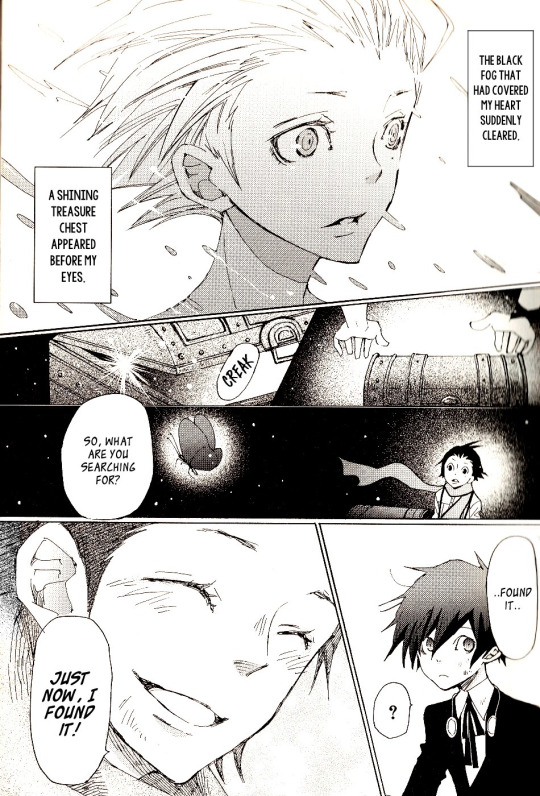
(While technically a non-canon portrayal of things, I still think it fits here :) After all, we know butterflies represent the souls of individuals in the series)
It’s not a perfect correlation naturally; the soul-image is that of the opposite gender of consciousness, to balance the psyche. But the mirror idea is the basis of their relationship, with Ryoji and the protagonist playing each other’s attitudes. The movies are more explicit with this, and there’s a particular quote I really hold close to my heart:
“綾時は理の対極にいるようなキャラクターです。物静かな理と社交的な綾時は"静と動"の関係であり,彼らの対比第3章の物語に欠かせない視点をもたらしています” - Keitaro Motonaga, Persona 3: Falling Down Pamphlet.
“Ryoji is a character that feels like the opposite of Makoto. The quiet Makoto and the sociable Ryoji have a relationship of ‘stillness and motion’, and their contrast brings about an indispensable perspective in the third chapter of this story.”
The connections are clear: Makoto is an introverted sensor (ISxx), and Ryoji is an extroverted intuitive (ENxx). And if we really break down their character, Makoto is an ISFJ (overall ISFx, with the J/P depending on the particular media) and Ryoji an ENFP, which is pretty damn close to a mirror match! You can compare them with Elizabeth, who is likely an ENTP.
Anyway, what’s more interesting in Ryoji’s Type is how it’s described on Psychological Types, under the “Extraverted Intuitive” section:
Going from “object” to “object” and situation to situation, never satisfied with the current circumstances staying the same.
That applies to people too, how they can go from “adventure” to “adventure” in search of romance.
Thanks to the enthusiasm they hold for what is next, they are able to inspire others as well.
Their unconsciousness is mainly governed by an archaic Sensation directed towards introversion, which means their blind spot corresponds to the endosomatic part of the senses, manifesting as strange and absurd sensations (which yes, it can include perceiving the world as dream-like).
And since Ryoji is a feeler as well, all those characteristics acquire a romantic tinge, seeing things by what they emotionally mean instead of what they (sensually) are. Does it sound familiar? Metaphors about “flowing water” maybe? You can quite literally do one of those school homeworks of joining columns with those points and Ryoji’s characterization.
Another interesting thing to consider is the contrastive relation between Ryoji’s and Makoto’s Types, which returns to my previous point of Ryoji being “incubated” through Makoto’s introversion, because he’s the personification of Makoto’s unconscious functions. The only exception is Ryoji being an extraverted feeler (ExFx) instead of an extraverted thinker (like with Elizabeth again, or Metis), but I still think it fits with Edogawa’s explanations in P4G:
“However, it's not impossible that you might have picked it. The other path was certainly a logical choice. Your Shadow is the path that you didn't take. In other words...It is another you. The Shadow is the ‘you that wasn't picked.’”
Through his fear and trauma, Makoto withheld all the “heat” he could have vested life with inside his soul, warming and breathing life into the “seed” that was sealed within. But whereas the Shadow merely personifies that repressed libido and possibilities, Ryoji became human only through living them—he didn’t only embody Makoto’s repressed yearnings and sufferings, but made them his own. This returns once more to the “jewel” of Pandora that doesn’t solely belong to Prometheus (i.e., Makoto), but to the whole world.
“hell: a name for the *prima materia, the *black colour which appears during the *putrefaction of the matter of the Stone at the *nigredo, the torture through which the ‘body’ of the Stone passes while being dissolved by the secret fire. [...] The nigredo stage is also known as ‘Tartarus’. During the process of the nigredo the colour of the putrefaction is said to be as black as pitch, and the shades of hell appear. A profound blackness reigns both over the matter in the alembic and over the alchemist who may experience the torments of hell while witnessing the shadow or underworld of the psyche.” - A Dictionary of Alchemical Imagery, by Lyndy Abraham.
There’s no need to explain why Tartarus and the Dark Hour are the unconscious, but I’ve to in regards to how they represent Makoto’s “stagnant hell” and their relationship with alchemy.
Fire and Motion
According to the same book I quoted before, “A Dictionary of Alchemical Imagery”, towers in general can be interpreted to be symbols of the alchemical alembic, the main instrument through which the alchemists try to create the philosophers’ stone. However, alchemy is both an outer and inner discipline, so the tower isn’t merely a symbol for the external instrument, but also for the inner one: the human soul, which is put through “hellish” heat to purify it. Thus, towers, hell, and the individual become synonyms for the same alchemical instrument of transformation, fueled by the “secret” or “inner fire” that, in this case, corresponds to Makoto’s libido.
If we follow the normal alchemical process, then Death/Ryoji should be equal to the prima materia or the “first matter” used to create the Stone. But since the Stone is a symbol of the Self, the presence of Ryoji is iffy unless we, instead of thinking of him as the actual goal of alchemy, interpret him as the “secondary” goal, as gold itself, the mineralized/gross essence of the sun.
“But when the alchemists speak of gold they mean more than material gold. In the microcosmic-macrocosmic law of correspondences, gold is the metallic equivalent of the sun, the image of the sun buried in the earth. The sun in turn is the physical equivalent of the eternal spirit which lodges in the heart (the ‘sun’ of the human microcosm).” - A Dictionary of Alchemical Imagery.
This is a topic I already explained previously, since “sun = life = libido = phallus”, corresponding to the masculine/yang/extraverted side of things. As I previously noted on Nyx's post, one can see all of these correspondences with Ryoji’s infamous yellow scarf that represents the golden color—Nyx's core—of the final battle according to the Design Works (again, thanks to elle-p for pointing out that indecipherable text!), decidedly marking him as a product of Makoto’s inner work—as his “mineralized” life-energy.
But to describe Ryoji as purely gold would be incorrect; he’s far from being a pure manifestation of the incorruptible essence of the sun. His true nature is pointed by, again, the final Persona of his Linked Episodes, Saturn, the black sun .
“This power is called ‘sulphur.’ It is a hot, daemonic principle of life, having the closest affinities with the sun in the earth, the “central fire” or ‘ignis gehennalis’ (fire of hell). Hence there is also a Sol niger, a black sun, which coincides with the nigredo and putrefactio, the state of death.” - Mysterium Coniunctionis.
It’s darkness itself, the stagnation of life and its energy that leads to the state we see in the Dark Hour: putrid and rotten to the core, stagnated and filled to the brim with the dead and lost in life. It’s the collective “dark night of the soul”, the nigredo stage of alchemy of all humanity that can only be overcome by setting the world in “fire”, the element of motion and change that makes the clock advance with each full moon and each cleared floor in Tartarus, for better or worse. The transformation of Death into Ryoji is just the repetition of such a process at the individual level.
And if all of that sounds familiar, it should be! That’s the fundamental meaning of both the Fortune and Death arcanas, representing the nature of life as endlessly changing to represent its wholeness. Thus, life stagnating and “becoming a void” is a paradox that must be solved by reigniting its motion/change, lest it collapses into itself.
“This card is attributed to the letter Nun, which means a fish; the symbol of life beneath the waters; life travelling through the waters. [...] In alchemy, this card explains the idea of putrefaction, the technical name given by its adepts to the series of chemical changes which develops the final form of life from the original latent seed in the Orphic egg.” - Book of Thoth, by Aleister Crowley.
The Death arcana is that hellish fire that puts people under the most unbearable pain to put things in the correct path once more. Due to that, it has three “manifestations”: the scorpion that kills itself when finding itself surrounded by “fire”; the serpent that renews itself through its shedding, crawling and thus still attached to earth; and the eagle, the spirit of life that soars the sky, unbounded by and embracing change at the same time. Yet, Death as a Shadow represents the contrary, the stagnated core of the Dark Hour that leads all to its destruction and that must be burned—killed and resurrected
Alchemy is necessarily a violent process, because it requires the constant death and union of the elements so they can be “perfected”. In Death’s case, its alchemical work began from the moment it was separated/“killed” and sealed in Makoto, who is a stand-in for the maternal womb, the alchemical vessel, and the mercurial waters that dissolve the murdered element. Yet, as the alchemist himself, Makoto also pours his own life and heat into the dissolved Shadow to unify and resurrect it in a new, “purer” shape: Pharos, the “creativity” of a nascent sun, the seed of a new life.
(By that matter, Nyx crashing against earth follows a similar pattern: the original being is mutilated and “dissolved” through the alambique—the primordial hadean life. The broken egg or core is an image that has the same meaning as the separation of Death; both fall under the dismemberment motif of alchemy)
But then, how does all of this relate with Saturn? Well, it’s because Saturn has a really long history in hermeticism, alchemy, and astrology: he represents the outermost and heaviest planet of all, embodying the limitations and structure of the universe such as time and death, devouring nature to rebirth it once again. Furthermore, the planet is associated with none other than lead, the heaviest metal that’s commonly used as a metaphor for the first matter, the moribund nature that… well, it should be obvious what one must do.

And funnily enough, just as fire is the element of transformation and renewal, Intuition in general corresponds to the function that oversees the dynamic elements of reality. It perceives the relations and motion between external/internal objects. So in more than one sense, Ryoji is the “inner fire”/“spirit” of Makoto. However, since alchemy deals with opposites and due to his nature as the black sun/saturn, there must be a limiting element in nature to restrain his ever-expanding/intuitive nature…
The Bonds of Death

Why a scarf? Why not another piece of cloth or even jewelry? Well, the image above answers why: a scarf is no different from a noose, one of the most common elements of death deities and grim reaper figures around the world, for what’s death but a hunter of humans? Thus, Ryoji’s scarf is a symbol of how even himself is bound to death, to his underlying nature.
“The difference seems to be due to the repression of real sensations. These make themselves felt when, for instance, the intuitive suddenly finds himself entangled with a highly unsuitable woman—or, in the case of a woman, with an unsuitable man—because these persons have stirred up the archaic sensations.” - Psychological Types.
I can hardly argue in favor of the “unsuitable” part, but there’s no need to really explain the other one, right? “Déjà vu” and all. That’s the “magical” part of Introverted Sensation, which transforms the sensed objects into symbols of the collective psyche through impressing it onto them. And in case of inferior Sensation, as presented above, those filtered sensations become “effective entities” on their own right since the archetypal forces of the unconscious control them, possessing them even. This strengthens the idea of Ryoji’s attraction being rooted not only in the forgotten or unconscious memories of when he was Pharos, existing in a liminal state between consciousness and unconsciousness, but also points to how those memories are themselves mixed with archaic, mythological imagery, and that only has one source.
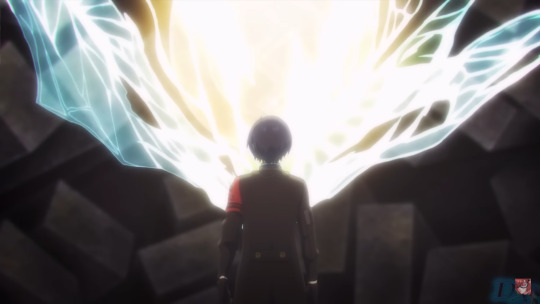
The protagonist is Ryoji’s “alchemist” and thus an equal to his “mother”, a reflection of Nyx as Death’s “mother”, the “black ocean” from which the transmuted golden egg (or seed) was extracted. This relationship is also pointed out by the fortune teller in club Escapade during January, explaining how “nothingness is the other face of the infinite world/universe”, ultimately hinting at the same thing I explained through the inferior Sensation: the oneness between the figure of Nyx and Makoto (understanding him as a symbol for all humanity).
In particular, I think the image above is perfect for this, since not only Nyx’s core and Makoto are (close to be) superimposed with each other, but also due to the black spiral in the background. The spiral also appears on the Great Seal’s surface, and within this context I have to quote Jung once more:
“We can hardly escape the feeling that the unconscious process moves spiral-wise round a centre, gradually getting closer, while the characteristics of the centre grow more and more distinct. Or perhaps we could put it the other way round and say that the centre—itself virtually unknowable—acts like a magnet on the disparate materials and processes of the unconscious and gradually captures them as in a crystal lattice. For this reason the centre is (in other cases) often pictured as a spider in its web (fig. 108), especially when the conscious attitude is still dominated by fear of unconscious processes.” - Psychology and Alchemy.
The book and even the own paragraph goes on to say that the “centre” is the Self (along with a noteworthy mention of the orphic egg again). But more importantly is the mention of the web here, representing consciousness’ “fear” of joining into the endless spiral that moves around without end, and its connection to the first kanji of Ryoji’s name: “綾”, which means “twill weave” or a “pattern of diagonal stripes”, a textile element that shouldn’t be so different from a web. Needless to say, all of that is connected to the figure of the alchemist/crafter and that of a mother.


The scarf in the first image, due to the fetal position of Ryoji, can be read as an umbilical (normally red) cord connecting him to Makoto/the “mother”, while the second is a little more explicit with the association to the red thread of fate—and what other fate there’s but death? Ryoji’s inherent connection to Death and Nyx is expressed through the “golden cord” that his scarf is, which can also be read as a noose, and as a manifestation of the inferior Sensation, the static element that eternally joins him to his source.
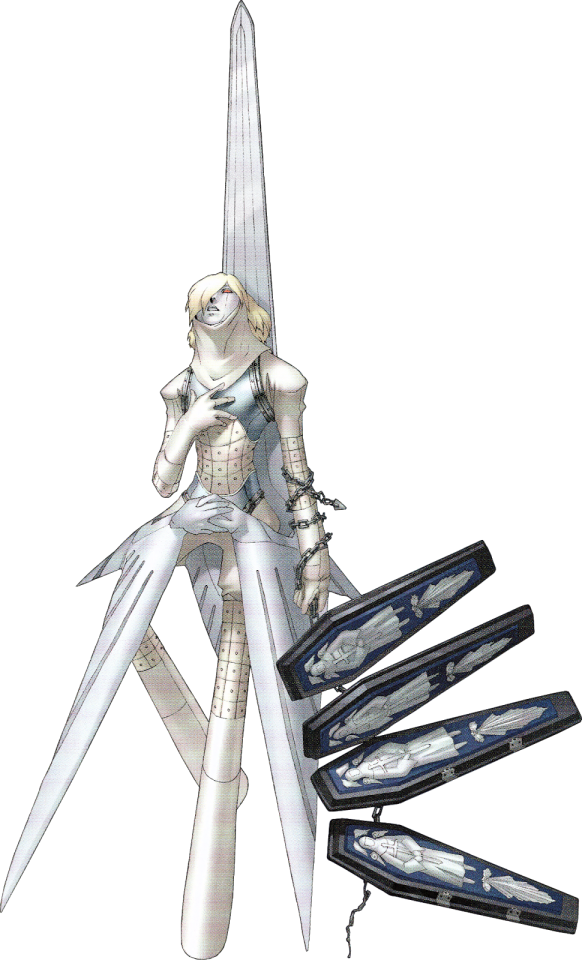
(Scan uploaded by Vesk)
Even the final resolution of Ryoji and Makoto, the white stone and pure dove incarnated, can’t abandon the chain that binds them to death and its hellish fire. However, this time is a willing acceptance of its existence, holding it with one’s hand instead of letting it strangle the individual unconsciously. Even the hands at the waist are holding each other gently, representing the final union of the “lovers” at the top of the alembic—at the top of Tartarus—in the form of a winged spirit.
“The united bodies of sulphur and argent vive, usually symbolized by a pair of lovers, are killed, dissolved and laid in a grave to putrefy during the stage known as the *nigredo. Their souls fly to the top of the alembic while the blackened *hermaphroditic body is sublimed, distilled and purified. When the body is cleansed to perfect whiteness it is then reunited with the soul (or united soul and spirit).” - A Dictionary of Alchemical Imagery.
Death is fate indeed, and in that fire, change and life. It’s the ultimate “fetter” that no one can go against, let alone the immortals that do not fear it.
#persona 3#persona 3 spoilers#ryoji mochizuki#makoto yuki#persona 3 protagonist#thematic analysis kinda?#there's a lot more I could comment here#specially in relation to his relationship with junpei since both of them are “red”#but I think this enough for the moment
32 notes
·
View notes
Text
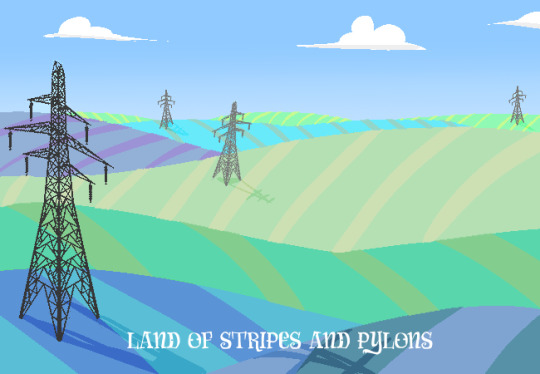
==>
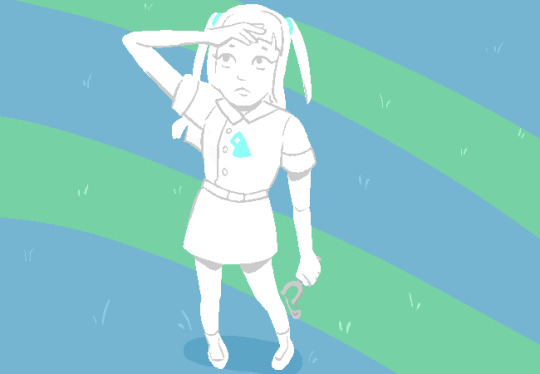
==>

The anthem of absolution is a gentle song. Sussurant whispers through the background of your life in time with the metronome tick of the doomsday clock in your dreams, now magnified by the empty rolling plains into a proclamation of triumph. For the first time in ten years you step outside your prison, and for the first time in your nineteen years you see a blue sky.
>Frolic through the seussian fields
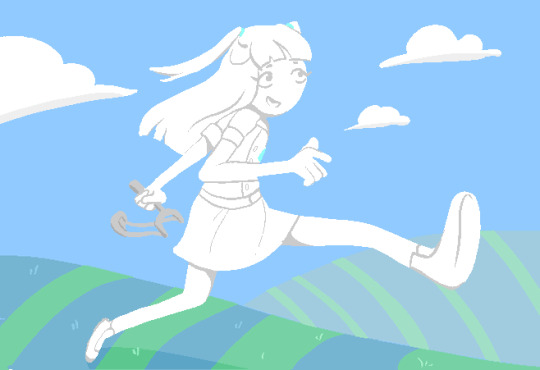
Yeah this is pretty great.
>Find your next victim

Your big-ass ella purnell eyes spot a lone IMP clinging to a nearby pylon.
>Aim
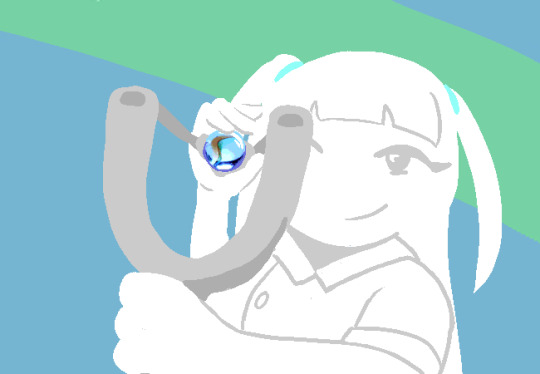
==>
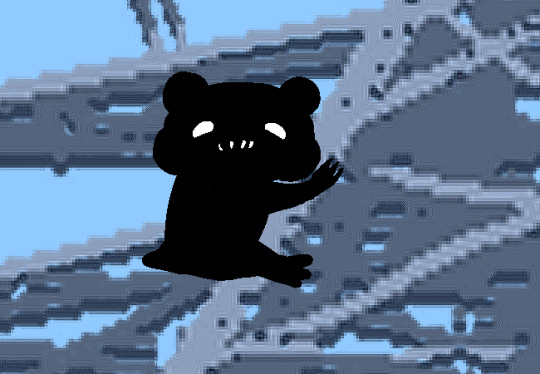
==>

==>
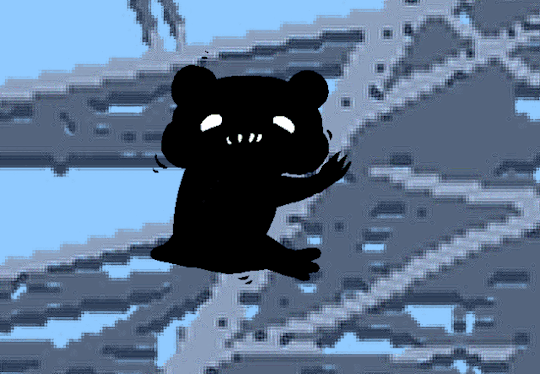
==>
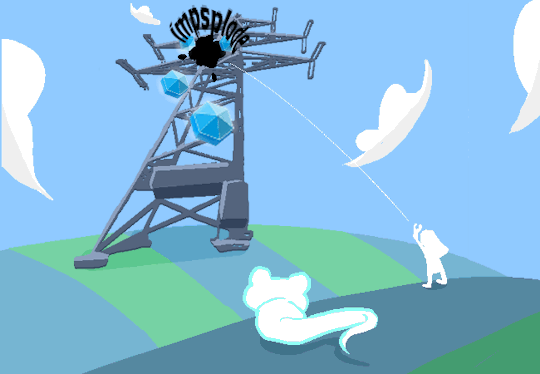
==>
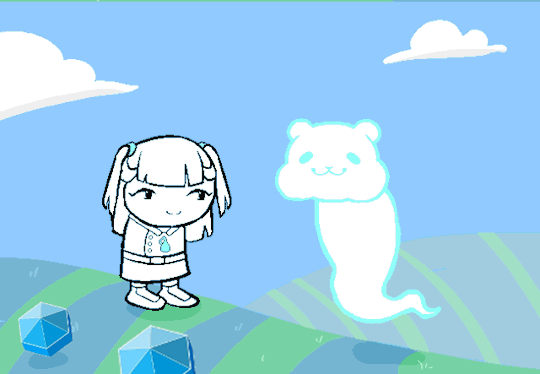
HAMSTERSPRITE: Nice shot.
>Level up
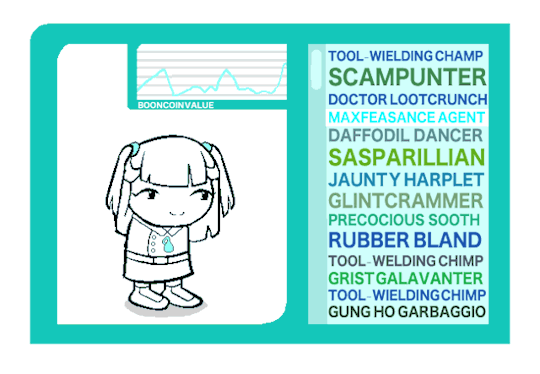
As you reach the respectable rank of MAXFEASANCE AGENT on your ECHELADDER for your accomplishment--the value of the single BOONCOIN in your GRIFTWALLET responding appropriately with your new notoriety--it occurs to you that in your excitement, you're skipping pretty far ahead in the timeline. What, do you expect a hypothetical audience to have some preexisting framework by which they could intuit the context of your adventure or something? That would be silly.
>Rewind a bit.
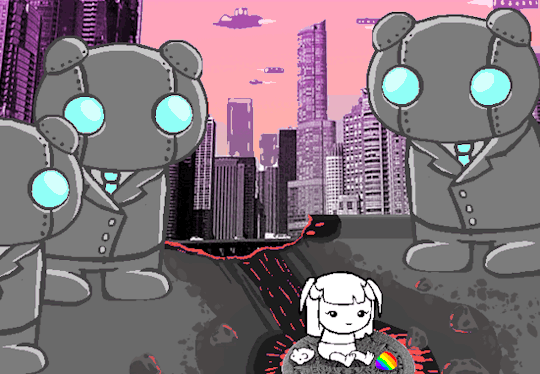
No, no, too far back.
>Skip ahead.
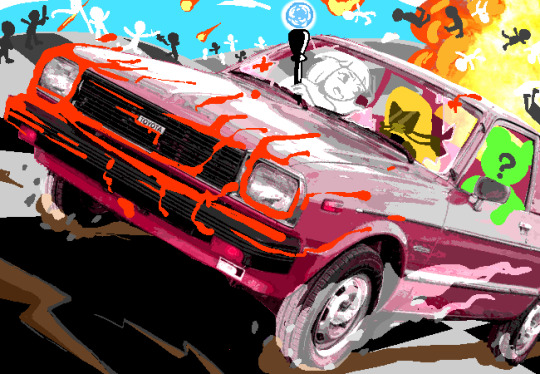
Oh come on! Spoilers!
>Find a happy medium between past and future.
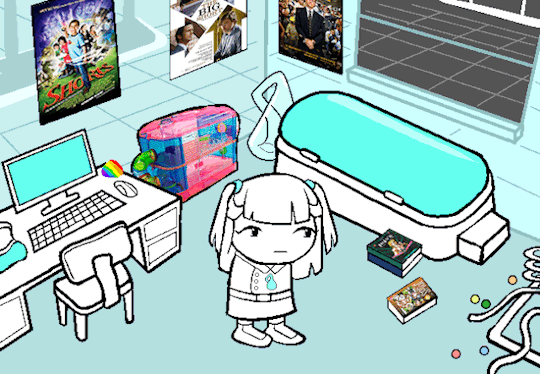
That's more like it.
Your name is QIRSMIT though you prefer to go by SMITTY to your extremely small circle of online friends. You live on the tidally locked techno-industrial powerhouse planet of LUSTRIUM, an arbitrarily large number of years in the future removed from the hypothetical audience to this internal monologue. That planet will be destroyed shortly, this you know, or at least have a pretty good hunch about.
This is because you are some kind of PROPHET, with the ability to foretell disaster derived from the strings of numbers you see in your dreams. You turn these numbers into STATISTICAL DATAPOINTS that you compare to the present performance of the Lustrium economy to predict IMMANENTLY DEPRECIATING STOCKS AND CURRENCIES with unerring accuracy.
This has been your job for your entire life, ever since your adoption by the cyborg broker hivemind known collectively as the SHAREBEARS, after you were delivered to the roof of their building by a fortuitous meteor. While not particularly personable, they are attentive to your needs and quick to indulge the many interests you pursue in your free time.
These interests include OLD EARTH MOVIES though the films the Sharebears obtain for you are more often than not related to the stock market and/or data analytics. You enjoy a well-plotted graph, but in your free time you prefer the more mystical studies of SACRED GEOMETRY and OBJECTS OF MATHEMATICAL INTRIGUE.
You enjoy building elaborate MARBLE COURSES and running races, both because it is a practical study of PHYSICS AND ENTROPY as well as very fun to see little glass balls roll down a chute. You have damn good aim with a SLINGSHOT too in case those little glass balls aren’t moving fast enough.
You have an interest in the ancient art of the JAPANESE MANGA and own rare print volumes of your favorite series. You can also amuse yourself for many hours by playing with your dear PET HAMSTER. You are also a bit of a GAMER, particularly virtual reality and simulation games as a substitute for rather limited freedom.
You used to have a lot more freedom, but as the lynchpin of the Sharebears operation there have been several attempts on your life by rival broker organizations over the years. One psychic attack nearly succeeded, resulting in a long stay on the PSYCH MOON to restore your capabilities.
==>
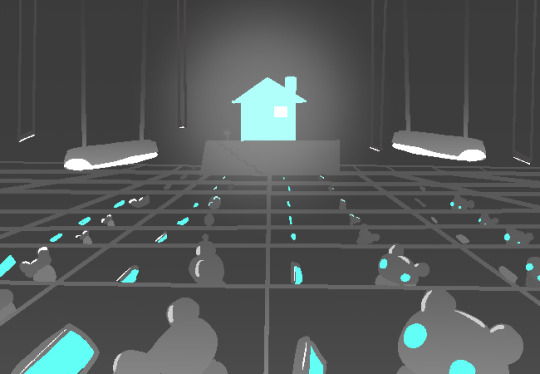
Now you spend your nights floating in a somnotank of PSYGEL to insulate your mind against unseen threats, and live inside a hermetically sealed reinforced glass bunker at the center of the Sharebears cavernous trading floor. The value of your abilities has provided you with a comfortable life and secure employment, you couldn’t ask for more and on Lustrium alone there are much worse ways to live.
But you often wish you didn’t feel so…bunkertrapped. dwellingenclosed. abodenfixed. There’s probably a good word for it.
>Examine Shorts poster.

SHORTS is your favorite film of all time, quite possibly the greatest film ever made. Given to you by the Sharebears after a misinformed assumption about it's content due to the title. On first watch, your eyes were opened to a world of compelling nonlinear narrative structure, the antique but timeless humor of the year 2009, and whimsical all-ages wishing-rock-related hijinks. You have watched it many times since.
==>
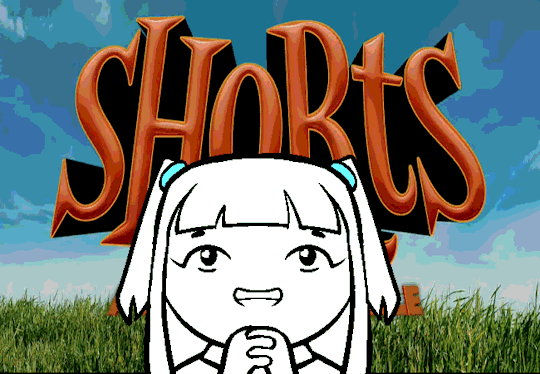
You dearly wish Toby “Toe” Thompson, Loogie Short, and “Nose” Noseworthy could be your friends. Helvetica Black was your first crush, and while you since question your prepubescent taste, there is something undeniably attractive about a girl with a rocket bike who can turn into a giant wasp. You assume the characters in the film are either entirely fictional, or as you have more recent reason to believe, long dead.
>Look at wishing rock.
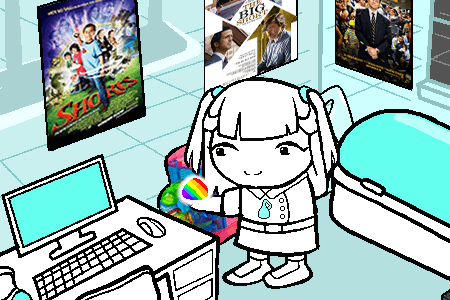
For your fascination with the film is also a matter of predestination. When you arrived on Lustrium as a meteor-borne infant, one of the things you brought with you was a rainbow-colored rock. Pretty but unremarkable, until your first exposure to Shorts led you to the astounding discovery that your mundane trinket was the very same wishing rock from the film. There is simply no other explanation.
However, your rock does not grant wishes, you assume it’s power was either exhausted, or it is waiting for the right conditions to activate once more.
You have written up a long list of carefully-worded possible wishes in anticipation of the day it does.
From a speculative rp project with @alpha-bread and @scrambo surrounding an oc sburb session. Got bit by the homestuck artbug HARD and figured I'd compile my work thus far.
19 notes
·
View notes